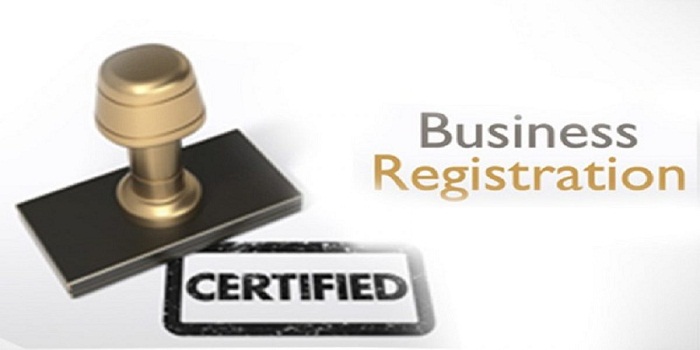Establishing your own business seems like a rewarding experience. However, knowing how to start and where to start is what you should know. There are multiple ways through which you can initiate your business.
This step-by-step guide will help you understand how you can start your own business easily.
Table of contents
Starting Your Business
You have seen businesses accomplishing overnight successes, right? However, you are missing the hard work, dedication and consistency behind the scenes. Therefore, your only focus is to start your new business and don’t measure its success with others.
New business owners are often motivated when they get frustrated over time. Therefore, draw a roadmap, and break it into short- and long-term goals to maintain consistency.

Step-By-Step Guide to Start Your Business
This guide will explain what are the ingredients for starting up your business.
- Figure out The Idea
- Market Research
- Create Your Business Plan
- Define Your Business Structure
- Register The Business
- Streamline Your Finances
Figure out The Idea
Your first step is to explore businesses and decide about your business concept. When choosing an area, make sure it is a profitable niche. For instance, you want to select music, but it may not be an appropriate option when you are not a singer.
Ask everyone in your circle to get a better idea. If you find no one to help you, ask the below questions from.
- What are you good at
- What is the profitable business these days
- On which matters do people ask for your advice
- What you hate to do
Such questions will help you develop a thought about a reasonable business. However, if you are already having an idea, these questions will expand it further.
Key Things to Consider before starting a business
- Type of funding you have
- What are your interests
- What passion do you have
- Are you planning to run a joint business
- How Quickly you can scale the business

Market Research
Market research remains a crucial aspect of your entrepreneurial journey. Additionally, when you go for raising funds, the investors often ask what sets you apart from the market. Therefore, make sure to perform in-depth market research.
In case you are launching a product already available in the market. Figure out a way to adopt a unique idea behind it. For instance, instead of going to a vet clinic, go for a specific animal like a cat, or dog, etc.
Primary research is the first stage of market research; it involves gathering information from your potential clients. You can do it by launching surveys, questionnaires, and interviews. Make sure to survey your potential customers rather than going to your friends and family.

Create Your Business Plan:
A solid business plan is your roadmap to success. It outlines your business goals, target market, products or services, marketing strategies, operational plan, and financial projections. This document helps you clarify your vision, attract investors or lenders, and guide your day-to-day operations.
Conduct thorough market research, identify your unique selling proposition, and include realistic financial forecasts to make your plan comprehensive and actionable.

| Section | Explanation |
| Executive Summary | Summarize your business plan briefly, including your business idea, target market, unique selling proposition, and financial projections. This section gives readers a quick overview of your business and its potential. |
| Business Description | Provide a detailed description of your business, including its mission, vision, goals, and values. Explain what sets your business apart from competitors and how it adds value to customers. This section establishes the foundation and purpose of your business. |
| Market Analysis | Conduct thorough market research to understand your industry, target market, competitors, and market trends. Identify opportunities and challenges, and explain how your business will position itself in the market to capitalize on opportunities and overcome challenges. |
| Products and Services | Describe your products or services in detail, including their features, benefits, pricing strategy, and how they meet customer needs. Highlight any unique features or advantages that differentiate your offerings from competitors. |
| Marketing Strategy | Outline your marketing and sales strategies to attract and retain customers. Include details on your target audience, marketing channels, promotional activities, pricing strategies, and customer acquisition and retention plans. This section guides your marketing efforts. |
Define Your Business Structure:
Choosing the right business structure, such as sole proprietorship, partnership, LLC, or corporation, is crucial for legal and tax purposes. Consider factors like liability protection, taxation, management flexibility, and ease of formation. Consult with legal and financial advisors to understand the implications of each structure and select the one that best suits your business goals and circumstances.

Register The Business:
Registering your business involves obtaining the necessary licenses, permits, and registrations to operate legally. This process varies depending on your location, industry, and business structure. It typically involves registering your business name, obtaining an employer identification number (EIN) from the IRS, and complying with state and local regulations. Failure to register properly can lead to fines or legal issues, so ensure you complete this step diligently.

Streamline Your Finances:
Efficient financial management is key to sustaining and growing your business. Set up separate business bank accounts, track income and expenses meticulously, establish a budget, and implement accounting software for accuracy and organization. Secure funding through loans, grants, or investors if needed, and manage cash flow effectively to cover operational costs and invest in growth opportunities. Regularly review and update your financial strategies to stay financially healthy and competitive.

Conclusion
How to start a business by yourself is an exciting yet challenging journey that requires careful planning, market understanding, and financial management. By following a step-by-step guide like the one outlined here, entrepreneurs can navigate the complexities of launching a new venture with confidence. Remember to stay adaptable, seek mentorship and support, and continuously refine strategies to build a successful and sustainable business.
Read More How To Start a Business: A Comprehensive Guide
FAQs
Market research helps entrepreneurs understand their target market, competitors, industry trends, and customer needs.
A business plan serves as a roadmap that outlines the business’s goals, strategies, target market, financial projections, and operational plans.
When choosing a business structure, entrepreneurs should consider factors such as liability protection, taxation, management flexibility, ease of formation, and compliance with legal requirements.
Efficient financial management is crucial for startups to sustain operations, manage cash flow, secure funding, track expenses, and invest in growth opportunities.

